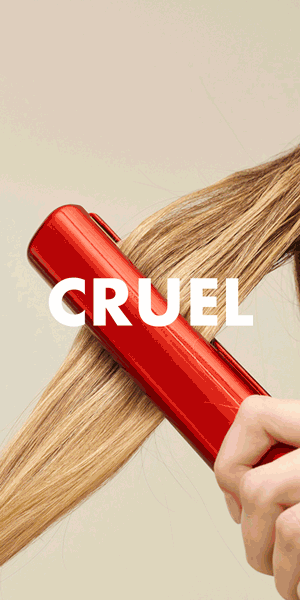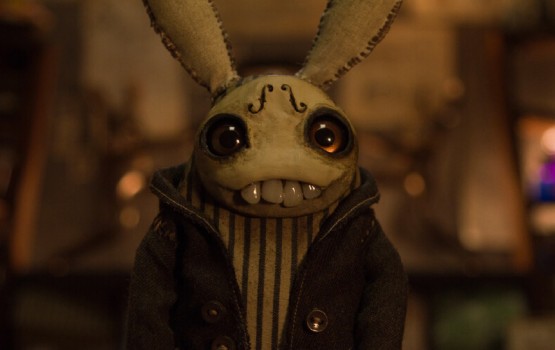How has your relationship to/understanding of your film The Maker changed in the years since it premiered?
The original intention of our film, The Maker, was to explore the preciousness of our moments on earth, the short time we have with loved ones, and the enjoyment of one's life's work and purpose.
After the film gained popularity and viewers wanted to know more, we expanded on the story by building a world with a deep mythology. This was published in the form of a novel called The Magnum Opus. So for us now, the short film is a doorway to a much richer story that delves into themes of oppression, courage and the need to overcome adversity through unity.
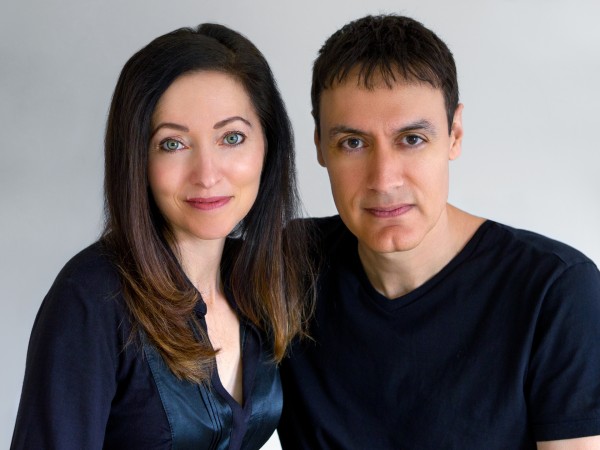
What are you most hoping new viewers will take away?
Regardless of what we think the film is about, it's very much open to interpretation, and we'd like viewers to take away what's most important to them. But with any of our projects, we strive to elicit an emotional response to our story. We want you to laugh, and we want you to cry. We want to haunt your memories - in a good way.
Both The Maker and Zero feature varying animation styles, what do you think animation is uniquely able to bring to the craft of filmmaking?
It opens up access to imagined worlds beyond what you could practically execute in reality. Through engaging characterization, you can cross ages, languages and cultural barriers to tell universal stories. Audiences are more willing to suspend their disbelief with animation. It's a nostalgic medium that we all grew up with and have a special connection to.
Tell us about the creative process of developing your short film Zero into a graphic novel & long-from project?
As with our adaption of The Maker short film into a novel, we received a lot of feedback from fans asking us about a follow-up to Zero. We put it off for a long time as we really didn't want to produce a follow-up unless it was as good as or better than the original. It took us 9-years (on-and-off) to figure out where this story needed to go.
The short film took 2 years to produce, and we weren't in a time of our lives that we wanted to chase funding and produce another animation. So instead, having had previous publishing experience with The Magnum Opus, we decided to tell our story in the medium of a graphic novel.
This served several advantages such as:
- Giving us the independence of being able to execute our idea within our means
- Getting our story out to the public faster
- Effectively producing a storyboard for a potential animation in the future
- Owning the book rights to the story if it were ever turned into a film
We hired Hoa Han, a fantastic illustrator based in Los Angeles (where we were living at the time), who, under our direction, brought the story to life. With many iterations and much feedback from our closest network, we published Zero: The Begining in 2019. About a year after we cracked the story.
We're now in the pre-production phase of merging our short film and graphic novel into a single animated project and will be looking for funding and distribution opportunities.
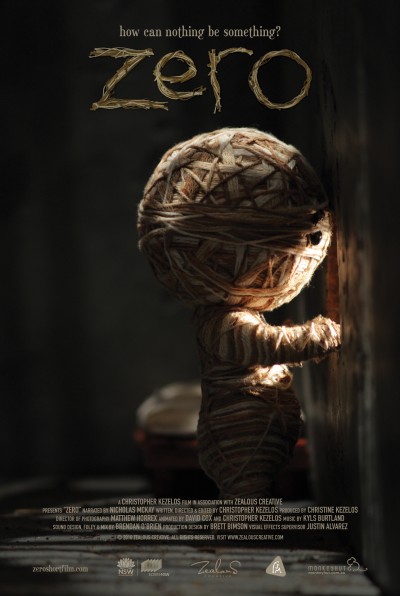
Can you run us through what it means to publish a script as a novel? How has this shift in medium affected your creative process?
As soon as you publish a book, you secure the print, eBook, audiobook, movie, television and many other rights for your IP. But the important part here is that you have to 'self-publish' via one of the many POD services. If you publish through a traditional publisher, they'll take ownership of those right in exchange for their publishing and distribution services.
If you can promote and sell your book yourself via your social media channels or some other means, you don't need to go through a traditional publisher. Even if you're unable to sell your book by any measurable degree, you've still gone through the exercise of fleshing out your story in incredible depth and secured all your rights. So if that script of yours, or even the book you wrote, finds traction, you'll be in a better position.
By self-publishing, you're effectively greenlighting yourself. There's no need to wait for a film funding body or publisher to give you permission to tell your story. You give yourself permission.
All our published books began as scripts, and we found this to be incredibly helpful as the scripts served as the backbone for our stories.
In terms of our creative process, we each have our own forte. When it comes to scriptwriting, Christopher is structured and concise, but for novels, Christine goes to town, fleshing out the world without constraint. As a result, we're able to bounce off each other in either medium to find the right balance and temper each other's work.
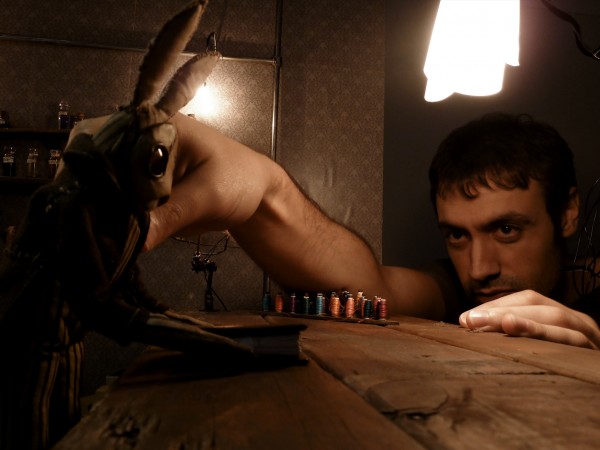
The Maker is somewhat existential in its never-ending cycle & discussion of the nature of creating. How do these themes relate to your experience as creators?
We definitely identify with The Maker. We feel compelled to create just as The Makers are compelled to make. We're constantly brainstorming story ideas or working on one thing or another. It very much does feel like a never-ending cycle for us. And it can become tiresome with setbacks. But also incredibly rewarding when our work is appreciated.
As per the dedication we wrote in The Magnum Opus, "You are a Maker, you must create, make haste for time should never waste."
What is the importance of short-form work?
Short-form work is excellent for cutting your teeth as an artist. It allows you to experiment, hone your skills, learn from your mistakes, build a network, and tell your story. Whether that be short films, web series, or even social media vignettes, all successful long-form storytellers started small.
Who have been your greatest mentors (in the conventional sense or otherwise) throughout your career? What is one lesson from them you will never forget?
Many people have inspired us, like Tim Burton, Guillermo del Toro and Peter Jackson, for filmmaking. And Michael Hauge and Joseph Campbell for writing.
But the one person who's directly responsible for where we are today as writers was the Vice President of Development from a large LA-based production company. She was a big fan of our animations and loved our feature script for The Magnum Opus. Given the mammoth hurdles of funding a feature animation, she was the one who first urged us to turn our script into a novel to ensure we own the IP and get our story out there. It took us a few years to heed her advice as the undertaking seemed daunting, having never written a novel before. But her guidance and mentorship over the years while we lived in Los Angeles profoundly impacted the way we distribute our stories.
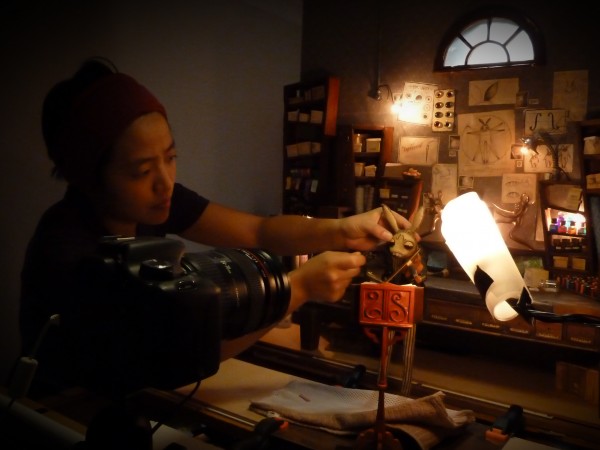
What is your top piece of advice to aspiring film makers + producers?
Three thoughts come to mind...
- As creatives, we've gone from live-action shorts to animated shorts, to novels, to graphic novels, to audiobooks. So the first piece of advice would be to "pivot". Experiment. Try new things.
- Learn how to write great stories. Technical competency or big budgets won't help your films if no one remembers or connects with your story. Take writing classes. Read writing books. Story. Story. Story.
- Align yourself with people better than you. They'll elevate your game, and you'll learn a tonne.
Shameless plug - what are you working on that we should keep an eye out for?
We're very excited about a script we've written for a live-action low-budget feature called, The Sasquatch of Jackson Farm.
It's about a lonely old farmer who decides to raise a Sasquatch infant he discovers orphaned in the woods. As the Sasquatch grows, he embraces life as a human and develops a keen taste for PB&J sandwiches and a love of soap operas. One night when a female Sasquatch ventures onto the farm, it changes the male Sasquatch's life forever—he must decide whether he's a human or a sasquatch.
It's a heart-warming tale about relationships, family disfunction and finding your inner self.
Per our other projects, we've also turned this script into a book and even produced a full-cast audio recording of the first chapter. You can check them both out on our website. We're now looking for a seasoned producer to help bring this to life, so invite interested parties to get in touch.


